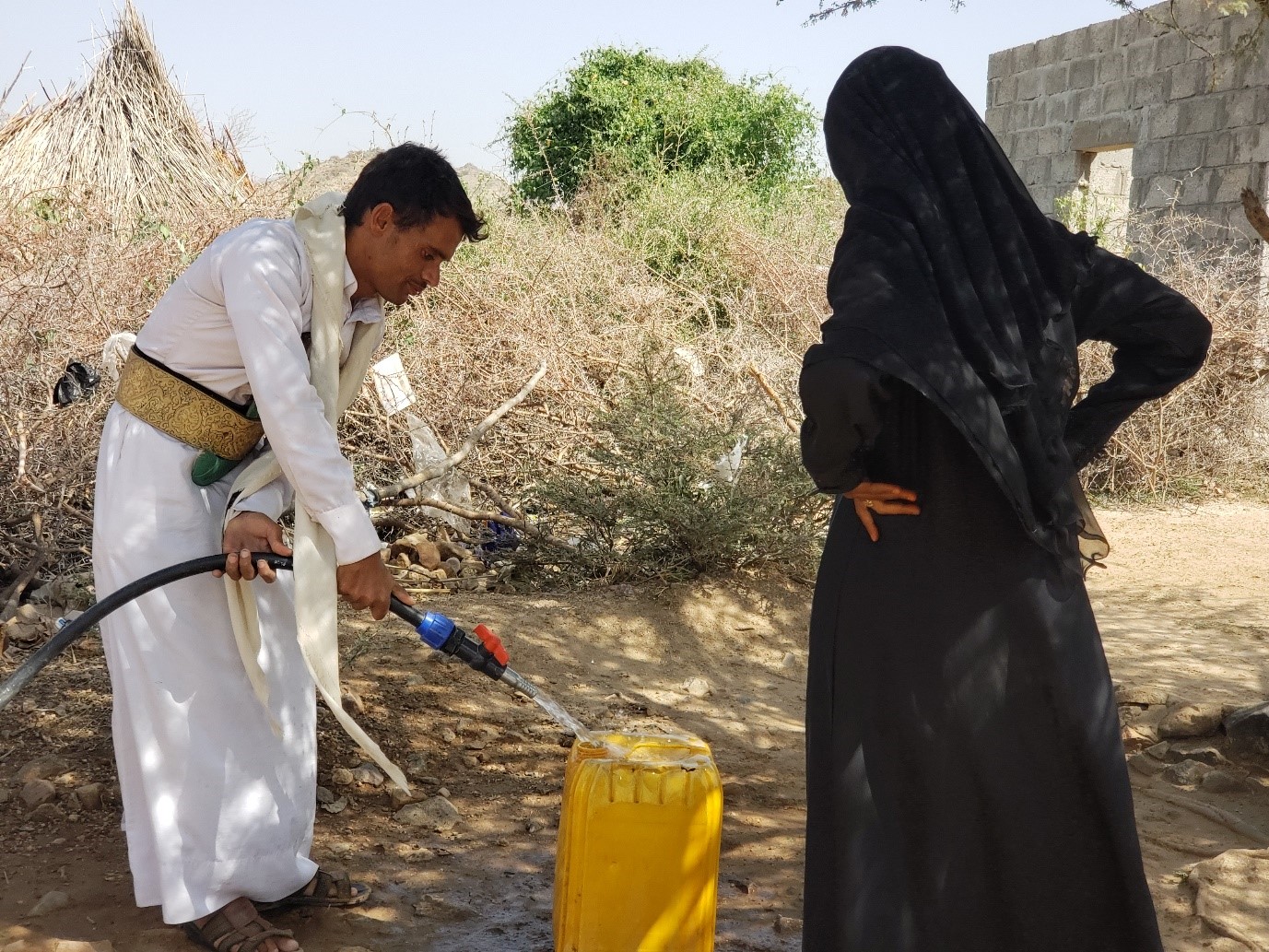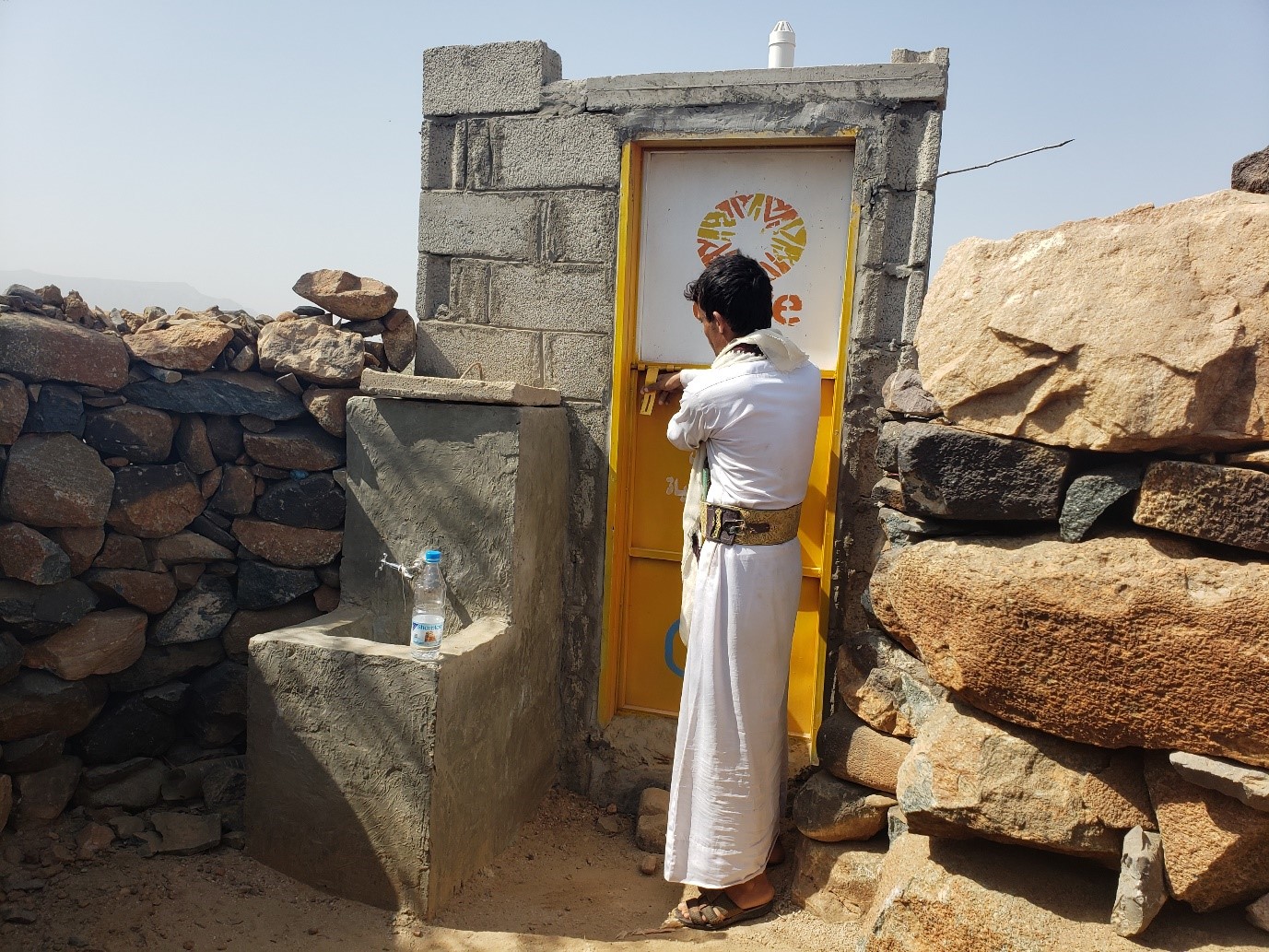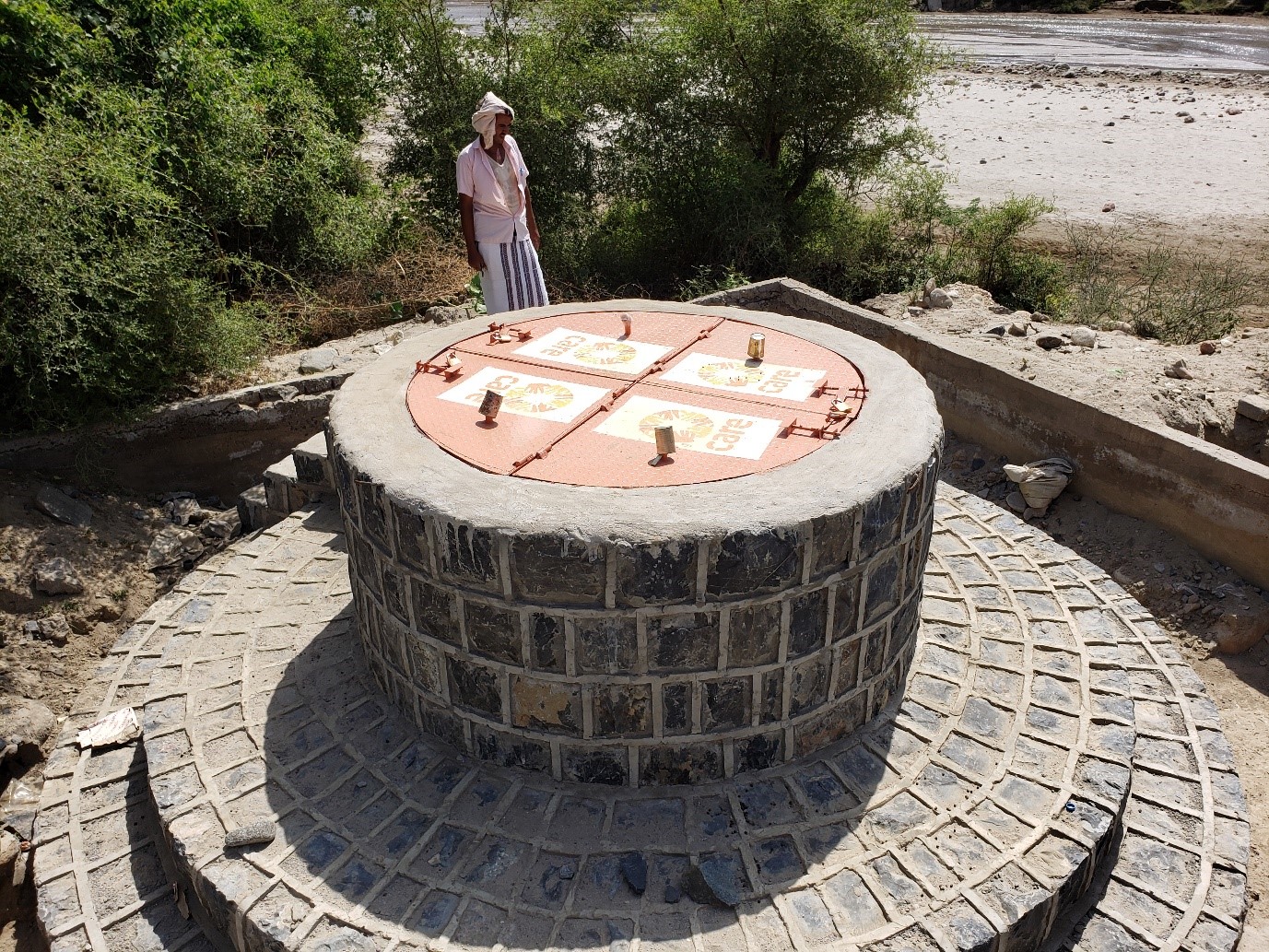Due to the ongoing conflict, more than 20 million people in Yemen are in need of water & sanitation services. 20.5 million Yemenis require support to meet their basic water, hygiene and sanitation needs, 11.2 million of whom are in acute need. The burden of fetching water often falls on women and girls who must walk long distances every day to reach water sources, leaving them vulnerable to many risks along the way.
Faizah Ahmed Shouai is a 35-year-old mother of three children. She lives in Al Nasser village in Bani Qais district of Hajja governorate in the north of Yemen. “I used to spend more than two hours fetching water from a distant valley, passing many hazards along the way,” says Faizah. “The water we brought used to be contaminated, containing stones, parasites and germs.”
In most Yemeni households, women and children are responsible for collecting water. Due to the prolonged conflict, primary water sources have stopped functioning, meaning that they have to travel long distances to reach the closest water sources. This threatens their safety and dignity as they have to face insecurity, animals and harsh weather conditions. Children may remain out of school so they can fetch water, and women’s time away from home can reduce their ability to breastfeed, care for their children and attend to their household chores – all of which can increase their stress.
Faizah recalls one of the critical situations she faced during water fetching, saying: “One day I was collecting water from the valley with many other women and girls. Suddenly, torrential floods came from the mountains and flooded the valley. We were shocked and ran to the highest areas to survive. That was horrific.”


